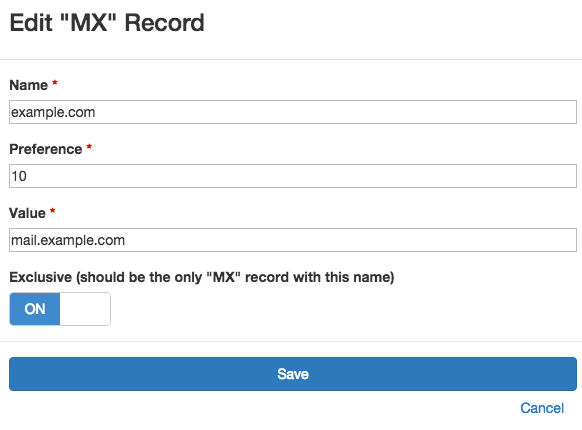DNS Check + PagerDuty = Complete DNS Monitoring
DNS is the Achilles heel of many monitoring systems. They often allow you to monitor A and AAAA records, which resolve domain names to IP addresses, but lack support for other DNS record types. They also often lack support for detecting incorrectly duplicated DNS records.
If this Achilles heel is present in your monitoring system, it could cause a failure to detect downtime in your production systems.
For example, if a conflicting MX record is created, will you get notified by your DNS monitoring system immediately, or by your users later when they notice that they're no longer receiving emails?

Security is another concern. If NS records get hijacked for a phishing attack, will you get notified by your DNS monitoring system immediately, or will it go unnoticed?

DNS Check was created to provide this missing DNS record monitoring functionality. It's meant to supplement, rather than replace existing monitoring systems. A, AAAA, CNAME, MX, NS, PTR, SRV and TXT records are all supported.
DNS Check enables you to easily monitor, share and troubleshoot DNS records. You can import your zone file and have DNS Check monitor the records in it, or specify individual records that you would like monitored. You can designate that a DNS record is "exclusive," meaning it should be the only DNS record of its name / record type combination. For example, the SPF record for your company's domain name should be the only SPF record for that domain.
You can also designate whether each set of DNS records should be publicly visible, which can save precious seconds if a DNS record is broken, but the person who is able to fix it doesn't normally have access to your monitoring system. Here's an example public DNS check.
DNS Check has partnered with PagerDuty to provide fast, reliable DNS monitoring and incident notifications. This allows you to combine the strengths of DNS Check's DNS monitoring service with PagerDuty's incident notification service. It also allows you to receive notifications from both DNS Check, and other monitoring systems through the same PagerDuty account.
Incidents are automatically created in PagerDuty when a DNS record check fails, and resolved when the record starts passing again.
Integrating your DNS Check account with PagerDuty is straight forward, and only takes about a minute. Read the DNS Check Integration Guide for details.
Interested in trying out DNS Check's DNS monitoring service, and our integration with PagerDuty? Sign up for a free DNS Check account. Free accounts can monitor up to 10 DNS records and have no expiration date. You're welcome to use your free account for as long as you like.
If you'd like to monitor more than 10 DNS records at a time, or enable advanced features like querying custom name servers, you can upgrade to a professional account any time.